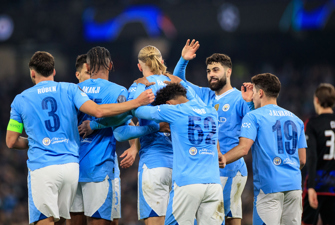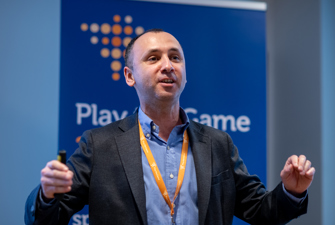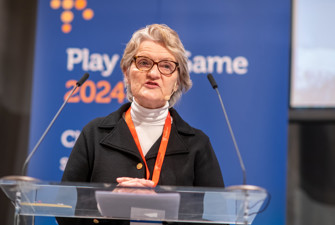Money for medals divides the Olympic movement
World Athletics has decided to pay Olympic champions in athletics prize money out of their Olympic revenue. But the IOC and other federations say the decision undermines the Olympic values, whilst athlete unions are campaigning for all Olympic athletes to be paid equally for their contribution to IOC’s billion-dollar revenues.
The Olympic Games were founded in 1896 by an aristocratic upper class who celebrated the ideal that true Olympic athletes did not compete for money but for the pure love of sport.
However, in April 2024, this business model of the IOC came under intense pressure from within when World Athletics decided that it was going to reward all Olympic champions in athletics at this summer's Olympic Games in Paris with a prize of 50,000 US dollars.
Based on revenue from participation in Olympic Games, World Athletics has set aside a total Olympic prize pot of 2.4 million US dollars to reward the 48 gold medallists in athletics at Paris 2024 and promised to introduce prize money for all athletics medal winners at the 2028 Los Angeles Olympics.
"The introduction of prize money for Olympic gold medallists is a pivotal moment for World Athletics and the sport of athletics as a whole, underscoring our commitment to empowering athletes and recognising the critical role they play in the success of any Olympic Games," World Athletics President Sebastian Coe said in a statement when the landmark decision was announced.
Coe is a former British middle-distance runner who won two Olympic track and field gold medals in the 1500 metres and two Olympic silver medals in the 800 metres. In 2020, the former chairman of the organising committee for the 2012 London Olympics became a member of the IOC and is by many Olympic observers seen as a possible candidate to take over the IOC presidency from Thomas Bach.
"While it's impossible to put a marketable value on winning an Olympic medal, or on the commitment and focus it takes to even represent your country at an Olympic Games, I think it is important that we start somewhere and make sure some of the revenues generated by our athletes at the Olympic Games are directly returned to those who make the Games the global spectacle that it is," said Coe.
French freestyle wrestler, Koumba Larroque, attended the unveiling of the medals for Paris 2024 Olympic and Paralympic Games. Photo: Pascal Le Segretain / Getty Images
IOC president: Prize money should not come from international federations
The Olympic movement has not welcomed the move from World Athletics.
At first, the IOC, which had revenues of 7.6 billion US dollars for the 2017-2021 Olympic cycle, commented on World Athletics' decision by saying that it distributes 90 per cent of its revenues to the National Olympic Committees (NOCs) and international federations and it is up to them to decide how to spend the money.
However, during an exclusive interview with the AFP, IOC president Thomas Bach distanced himself from World Athletics’ Olympic prize money by saying:
“The international federations have to treat all their member federations and their athletes on an equal basis and try to balance this gap between the privileged and the less or underprivileged.”
The IOC president added that national Olympic committees rather than international federations were free to motivate their athletes with prize money, noting that he received money from the German Olympic Committee for winning a gold medal in fencing at the 1976 Games in Montreal.
“Each pillar of the Olympic movement has its role to play. It’s very clear what the responsibility of an international federation is and what the responsibility of a national Olympic committee is,” Bach said in a critique of World Athletics that was in line with the opinion of the Association of Summer Olympic International Federations (ASOIF).
ASOIF: This disregards the less privileged athletes
The Association of Summer Olympic International Federations (ASOIF) is also critical of World Athletics' introduction of Olympic prize money.
"During the past few days, ASOIF members have expressed several concerns about World Athletics' announcement. First, for many, this move undermines the values of Olympism and the uniqueness of the Games. One cannot and should not put a price on an Olympic gold medal and, in many cases, Olympic medallists indirectly benefit from commercial endorsements. This disregards the less privileged athletes lower down the final standings," ASOIF said in a statement.
"Second, not all sports could or should replicate this move, even if they wanted to. Paying prize money in a multi-sport environment goes against the principle of solidarity, reinforces a different set of values across the sports and opens up many questions."
However, it is not only the IOC president and some international member federations of ASOIF such as the International Cycling Federation (UCI), the International Gymnastic Federation (FIG), and World Rowing that have criticised World Athletics for taking this decision without discussing the issue with other Olympic stakeholders.
Some national Olympic committees are upset too. In an interview with Sky Sports, British Olympic Association chief Andy Anson said of World Athletics:
“They create a problem because now other sports are clearly going to get some scrutiny or even pressure from athletes saying: ‘Well what about our sport, how can this sport do it and not us?’ It’s a debate we can have but we need to have it at the right time, and the right place, and together."
Matthew Graham, head of the World Players Association calls World Athletic's decision to give money for Olympic gold medals 'long overdue'. Photo: Thomas Søndergaard / Play the Game
World Players' Association: The IOC is the worst in class
World Athletics's decision is also met with criticism from athletes' quarters for not going far enough.as most Olympic athletes will still not receive any money for their hard work.
"World Athletics' decision to award prize money for Olympic gold medallists in athletics is long overdue, but merely a very small step forward," Matthew Graham, head of World Players Association, tells Play the Game.
"Athletes are both the essential labour and the product that make all sport possible. Accordingly, all athletes who compete at the Olympic Games - whether in track and field, or any other discipline should be entitled to pay equity and their fair share of revenue."
For Graham, pay equity means fair pay for all athletes, not just the top athletes who win gold.
"The majority of Olympians make incredible sacrifices and are forced to work several jobs in order to pursue their Olympic dreams and should be afforded the same dignity and respect they bring to their sports," says Graham.
He adds that a study of the economics of international sport governing bodies completed by the World Players Association in 2022 shows how far global sport governing bodies are falling behind when it comes to sharing revenue with athletes, with the IOC being the worst in class.
"Despite generating some of the largest revenues, and having enormous funds in reserves, the IOC not only fails to share its wealth directly with the athletes but actively limits their earning potential at the Games through Rule 40 and other restrictions," says Graham, referring to rule 40 of the Olympic Charter which the IOC uses to regulate Olympic athletes' commercial activities.
"In doing so, it falls well behind established industry best practice in major sports globally, including football, rugby, cricket, hockey, Australian rules and others."
Graham adds that global sports organisations should urgently reform outdated and outmoded business models and embrace a model based on partnership with the athletes.
"This has proved a win-win elsewhere supporting the economic growth and development of sport, and increased prosperity for those who ultimately make sport possible - the athletes themselves."
Paulina Tomczyk, secretary general of EU Athletes, believes the IOC exploits Olympic athletes. Photo: Thomas Søndergaard / Play the Game
EU athletes: The ASOIF statement is disappointing
Paulina Tomczyk is secretary general of EU Athletes which represents elite European athletes, and for her World Athletics' introduction of Olympic prize money is not negative but she believes that in a multi-sport event, all athletes should be paid the same.
"ASOIF's statement is disappointing. It seems like they are taking the idea that athletes should receive payment or compensation off the table. That's not the right approach. Solidarity doesn't mean that no one should get money. Solidarity means that everyone should be paid and have decent working conditions," Tomczyk argues in an interview with Play the Game.
EU Athletes wants all athletes to have the same fundamental rights as all other citizens. Whenever sport is an economic activity, athletes must be recognised as workers and their labour rights must be protected and respected. EU Athletes also states that occupational health and safety standards must be respected in the workplaces of athletes and take the unique risks of sports careers into account.
But according to an EU Athletes’ common position paper, many sports federations, leagues and even some national laws deprive athletes of their rights as workers by classifying them as "amateurs" or "non-professionals" even in cases where they have a significant income:
"These athletes often do not have basic labour contracts and are excluded from social security, not to mention employment protection or collectively bargained regulations," the paper says.
Tomczyk adds that, in her opinion, most definitions of 'professional athletes' are arbitrary:
"The best athletes in the world are all professionals. Sport is their life, their work. But the IOC and the international sports federations are not very interested in having a dialogue with players' associations about how to pay athletes and ensure their working conditions."
Tomczyk: The IOC exploits Olympic athletes
The secretary general of EU Athletes recognises that paying all Olympic athletes is a complex issue but she encourages all stakeholders in Olympic sports to help find possible solutions to the current problems because decent payments and working conditions for all athletes will also reduce the risk of athletes becoming involved in match-fixing and doping in sport.
When asked why paying money to Olympic athletes is controversial, 36 years after professional tennis players were allowed to compete at the Seoul Olympics and 32 years after the 'Dream Team', the first professional US Olympic basketball team, won gold at the Barcelona Games, Tomczyk replies:
"Firstly, sport is so important to many athletes who are willing to sacrifice many things, both physically and financially, to compete at the Olympics. Money is secondary to them. Athletes are so committed, motivated and passionate. Unfortunately, the IOC exploits this," says Tomczyk.
"Secondly, athletes have a short career. Most of them don't want to risk their career by demanding decent pay and working conditions. They are afraid that they won't be selected for the team or lose support. Unfortunately, this happens."
Athleten Deutschland: The entire system makes billions from athletes' labour
Nevertheless, the global players' union movement is growing and getting stronger. One example of this is Athleten Deutschland which was founded in 2017 to give elite athletes competing for Germany a stronger voice and to work for fundamental changes in the German and international sports system.
Johannes Herber, CEO of Athleten Deutschland, calls World Ahtlete's decision to share part of the IOC's revenue with athletes a big step forward.
"Athletes and their performances are at the core of the IOC's multi-billion-dollar business model. This should be another wake-up call for the IOC and the other international federations to follow suit and start implementing revenue-sharing models themselves. Funds should be earmarked and distributed not only for the benefit of medallists but for everyone who qualifies for the Games," Herber says to Play the Game.
According to Herber, World Athletics' move is an answer to a long-standing call by athletes around the world “to receive a share in the exorbitant profits generated by their performances". He adds that the IOC's revenues are increasing and that it is expected that the Games in Paris and Los Angeles will surpass previous revenue records.
"It should undoubtedly be possible for athletes to share directly in these revenues while at the same time supporting the international federations and national Olympic committees," Herber says, adding that "it is currently unclear whether the money generated by the athletes is actually used exclusively for their benefit."
For Herber, the Olympic movement, first and foremost the IOC, but also the international federations and national Olympic committees, are at least obliged to provide a detailed account of their money trails:
"It must be disclosed how the decision-making processes for the distribution of these funds are actually structured and what influence athletes can have on them. After all, the entire system makes billions from the work of athletes without paying them fairly or allowing them to participate in the wealth they generate,” Herber argues.
Triple jumper: Some sports circles cling to the Olympic ideals of amateurism
World Athletics’ announcement of Olympic prize money in athletics was applauded by US athletics stars Tara Davis-Woodhall, Kenny Bednarek, and Ryan Crouser, as well as Sarah Hirshland, the CEO of United States Olympic and Paralympic Committee (USOPC).
“Any time we can put resources in the hands of athletes, we should all celebrate. We need more resources to get into the hands of athletes so that they have both the ability to sustain themselves from a just day-to-day lifestyle perspective, but then also continue to invest in their training,” Hirshland said to the news agency Reuters.
“I know athletes that have medalled at world championships are still working two jobs and living with a roommate. It’s just the misconception that kind of lingers to athletes, regardless of what level you’re at, if you’re making the Olympics, that you’re financially secure and you are absolute not,” the twice Olympic shot-put champion Ryan Crouser stated according to Reuters.
Olympic athletics stars from other countries such as Karsten Warholm of Norway, Armand Duplantis from Sweden, and Andre De Grasse from Canada have also applauded World Athletics’ move. And even some athletes at a lower sporting level support the Olympic prize money initiative in athletics.
"In my opinion, it's a good and right direction of development," Topias Koukkula, a Finnish triple jumper and president of the Finnish Athletes Association, tells Play the Game.
"Athletics is an extremely global and competitive sport today. I think this reform gives the right kind of appreciation for athletic success at the Olympics – other than at a symbolic level."
Koukkula adds that while an Olympic medal can indirectly lead to significant sponsorship revenue, and that Olympic champions in some countries are rewarded with pensions, there are significant differences between countries and athletes:
"In the big picture, the prize money in athletics is still small compared to some other individual sports, such as winning a Grand Slam title in tennis. It's also important to note that World Athletics pays prize money to the top 8 in the World Championships. The Olympics do not differ in level from these competitions in general."
The Finnish triple jumper, who has come close to qualifying for the European Championships a few times but is still quite far from the Olympic level, says that the ideology of amateurism on which the Olympics were originally founded is still strong in some sports circles:
"While sports, in general, are increasingly commercialised entertainment industries, the Olympics is seen as an event where the ideals of amateurism are held on to as a last stronghold - despite the fact that a significant proportion of Olympic athletes are professionals nowadays."















